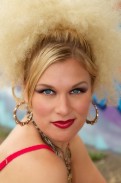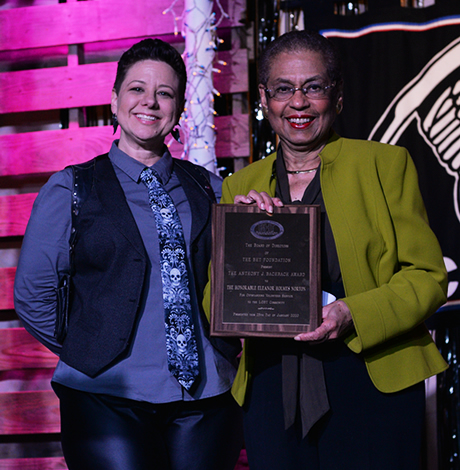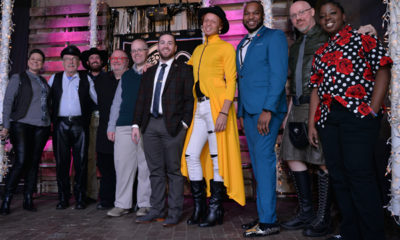Arts & Entertainment
Out & About: Jan. 27
Galactica at the Fox, Ho gets ‘Gaylarious’ and more


Galactica’s revue continues to expand — she plays her first shows with ‘the Comettes’ this weekend at gay-owned Black Fox Lounge. (Photo courtesy Jeffrey Johnson)
Galactica returns to Black Fox
Special Agent Galactica returns with her band Captain Satellite and the Escape Pods for a new show at the Black Fox Lounge (1723 Connecticut Ave., N.W.) tonight and Saturday at 8 p.m.
Galactica will also be joined by two new “crew members,” the Comettes.
The show will features songs by Pat Benatar, Cee Lo Green, Jeffrey Johnson (Galactica’s alter ego), the late Etta James and more. Galactica is continuing her live singing approach after making a name for herself as a first-rate lip synch artist.
Tickets are $15 and are available online at pinkhairedone.com.
Brother Help Thyself doles out grants, awards
Brother, Help Thyself is holding its 34th annual grant reception and awards ceremony on Saturday at Remington’s (639 Pennsylvania Ave., S.E.) at 2 p.m.
The ceremony will include performances by Potomac Fever Ensemble, Tom Goss and D.C. Different Drummers’ Mad Hatters.
Over the past 30 years, Brother, Help Thyself has raised about $2.1 million and distributed it to more than 130 groups in the community.
Capital Pride hosts volunteer kick off Tuesday
The Capital Pride planning committee invites the community to join its organizers Tuesday at 7 p.m. for a volunteer kick-off meeting at Redwood Century 21 (1701 Q St., N.W.) off the Dupont Circle Metro stop.
Those interested in helping with this year’s festivities — which culminate the weekend of June 9 — are encouraged to attend and learn more about all facets of the process from the festival, parade, entertainment, marketing and more. The meeting will last about one hour. Light refreshments will be served. Visit capitalpride.org for more information.
FROM STAFF REPORTS
Raunchy Ho to play Gaylarious
Wendy Ho, the raunchy rapper whose “Bitch, I Stole Yo Purse” video was a 2008 favorite on Logo, plays Riot Act Comedy Theatre’s Gaylarious, a monthly queer comedy night, Wednesday. Gays Zach Toczynskiris and Chris Doucette host.
“A lot of what you see onstage is me,” says Ho, who’s straight. “My material is mostly about life as a woman and breaking out of the mold that men have cast for us. Of course, I don’t be sittin’ around my house in my wigs all day like Lady Gaga claims she does. I can’t wait to rip off the costume when I get off stage.”
Initially, Ho (born Wendy Jo Smith) was unsure if introducing the persona was a wise career move. Putting herself out there as a trash talking bad girl and revealing thornier issues from her own past had obvious drawbacks; but after she first took the act to A-list comedy clubs and gay bars in New York City it clicked immediately: “The audience embraced what I was doing. For me, performing as Wendy Ho was like coming out of the closet.”
The L.A.-based performer describes her act as part standup/part concert. Her sound, she says, is like Lil’ Kim but dirty like Peaches and funny like Lonely Island. For her, Wendy Ho’s over-the-top femininity is empowering. By using humor and blurring the lines of sexuality and cultures, Ho says she brings people together with her unapologetically raw material.
The theater is at 801 E Street, N.W. Tickets are $15. Call 202-697-4900 or visit riotactcomedy.com for details.
PATRICK FOLLIARD
Books
New book highlights long history of LGBTQ oppression
‘Queer Enlightenments’ a reminder that inequality is nothing new
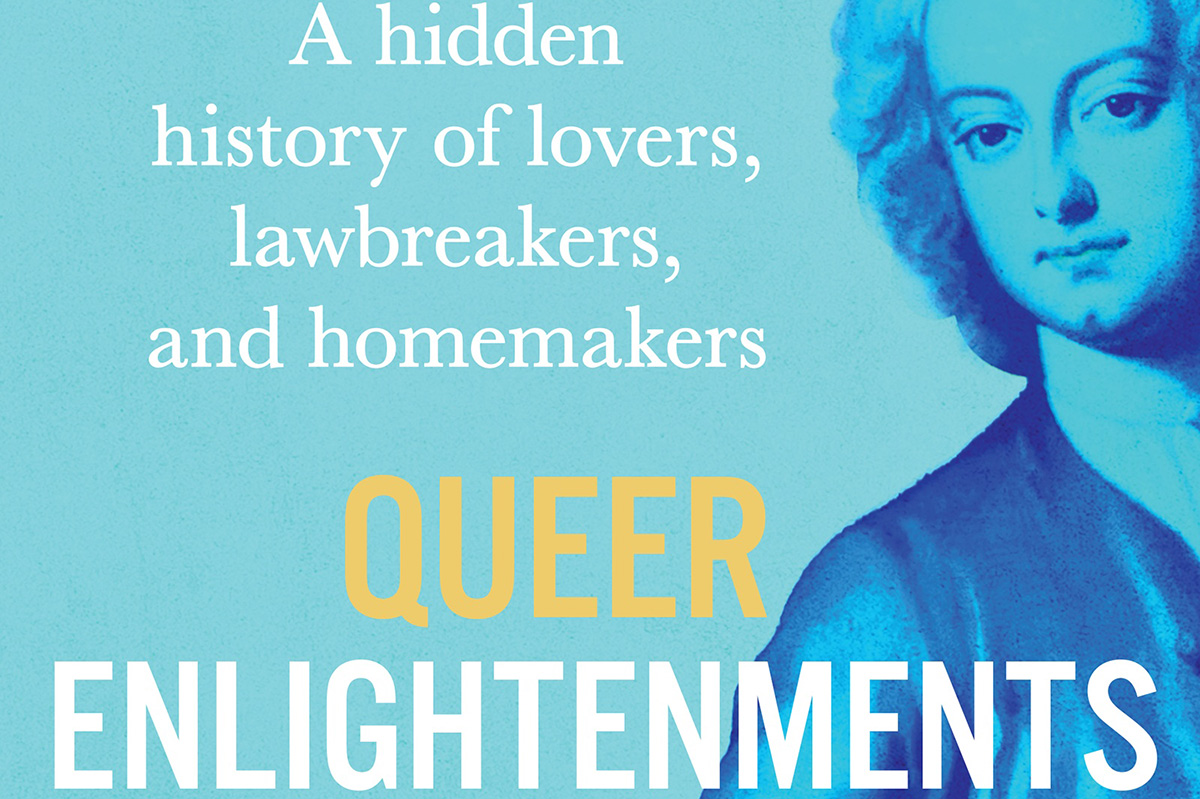
‘Queer Enlightenments: A Hidden History of Lovers, Lawbreakers, and Homemakers’
By Anthony Delaney
c.2025, Atlantic Monthly Press
$30/352 pages
It had to start somewhere.
The discrimination, the persecution, the inequality, it had a launching point. Can you put your finger on that date? Was it DADT, the 1950s scare, the Kinsey report? Certainly not Stonewall, or the Marriage Act, so where did it come from? In “Queer Enlightenments: A Hidden History of Lovers, Lawbreakers, and Homemakers” by Anthony Delaney, the story of queer oppression goes back so much farther.

The first recorded instance of the word “homosexual” arrived loudly in the spring of 1868: Hungarian journalist Károly Mária Kerthbeny wrote a letter to German activist Karl Heinrich Ulrichs referring to “same-sex-attracted men” with that new term. Many people believe that this was the “invention” of homosexuality, but Delaney begs to differ.
“Queer histories run much deeper than this…” he says.
Take, for instance, the delightfully named Mrs. Clap, who ran a “House” in London in which men often met other men for “marriage.” On a February night in 1726, Mrs. Clap’s House was raided and 40 men were taken to jail, where they were put in filthy, dank confines until the courts could get to them. One of the men was ultimately hanged for the crime of sodomy. Mrs. Clap was pilloried, and then disappeared from history.
William Pulteney had a duel with John, Lord Hervey, over insults flung at the latter man. The truth: Hervey was, in fact, openly a “sodomite.” He and his companion, Ste Fox had even set up a home together.
Adopting your lover was common in 18th century London, in order to make him a legal heir. In about 1769, rumors spread that the lovely female spy, the Chevalier d’Éon, was actually Charles d’Éon de Beaumont, a man who had been dressing in feminine attire for much longer than his espionage career. Anne Lister’s masculine demeanor often left her an “outcast.” And as George Wilson brought his bride to North American in 1821, he confessed to loving men, thus becoming North America’s first official “female husband.”
Sometimes, history can be quite dry. So can author Anthony Delaney’s wit. Together, though, they work well inside “Queer Enlightenments.”
Undoubtedly, you well know that inequality and persecution aren’t new things – which Delaney underscores here – and queer ancestors faced them head-on, just as people do today. The twist, in this often-chilling narrative, is that punishments levied on 18th- and 19th-century queer folk was harsher and Delaney doesn’t soften those accounts for readers. Read this book, and you’re platform-side at a hanging, in jail with an ally, at a duel with a complicated basis, embedded in a King’s court, and on a ship with a man whose new wife generously ignored his secret. Most of these tales are set in Great Britain and Europe, but North America features some, and Delaney wraps up thing nicely for today’s relevance.
While there’s some amusing side-eyeing in this book, “Queer Enlightenments” is a bit on the heavy side, so give yourself time with it. Pick it up, though, and you’ll love it til the end.
The Blade may receive commissions from qualifying purchases made via this post.
Movies
In solid ‘Nuremberg,’ the Nazis are still the bad guys
A condemnation of fascist mentality that permits extremist ideologies to take power
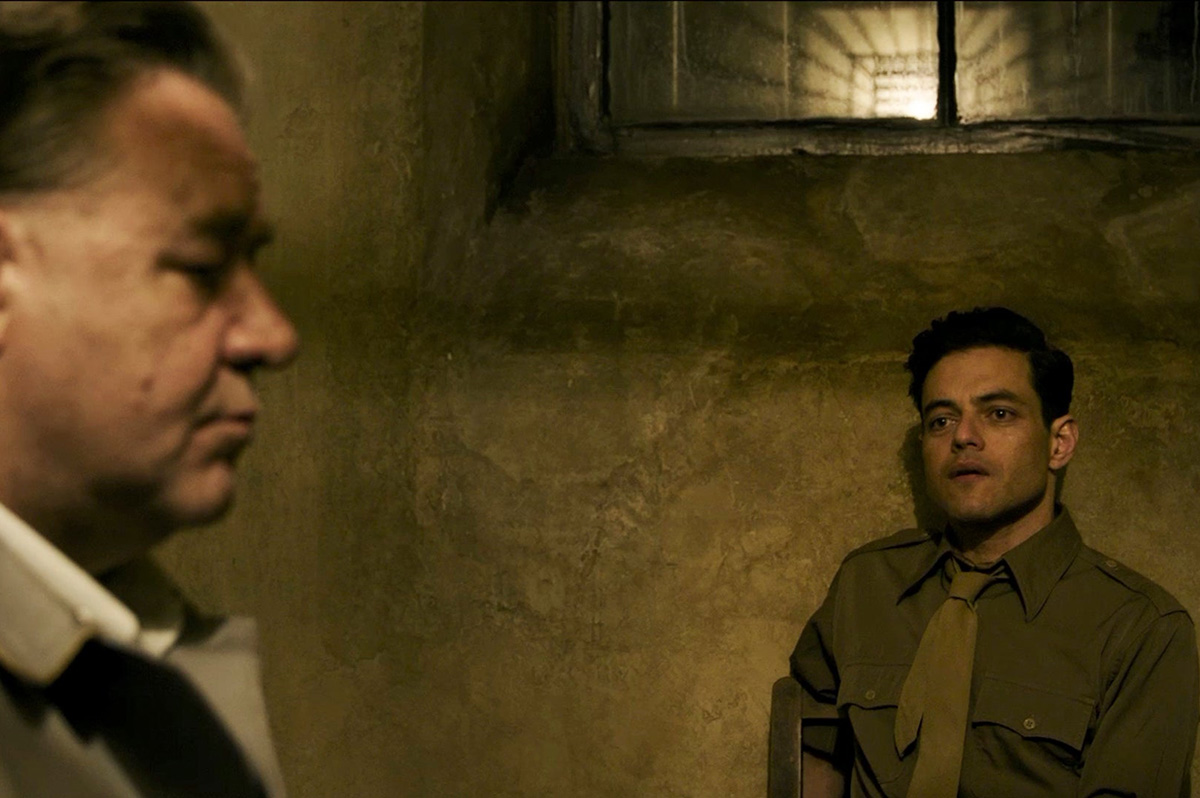
In any year prior to this one, there would be nothing controversial about “Nuremberg.”
In fact, writer/director James Vanderbilt’s historical drama – based on a book by Jack El-Hai about the relationship between Nazi second-in-command Hermann Göring and the American psychiatrist who was tasked with studying him ahead of the 1945 international war crimes trial in the titular German city – would likely seem like a safely middle-of-the-road bet for a studio “prestige” project, a glossy and sharply emotional crowd-pleaser designed to attract awards while also reinforcing the kind of American values that almost everyone can reasonably agree upon.
This, however, is 2025. We no longer live in a culture where condemning an explicitly racist and inherently cruel authoritarian ideology feels like something we can all agree upon, and the tension that arises from that topsy-turvy realization (can we still call Nazis “bad?”) not only lends it an air of radical defiance, but gives it a sense of timely urgency – even though the true story it tells took place 80 years ago.
Constructed as an ensemble narrative, it intertwines the stories of multiple characters as it follows the behind-the-scenes efforts to bring the surviving leadership of Hitler’s fallen “Third Reich” to justice in the wake of World War II, including U.S. Supreme Court Justice Robert Jackson (Michael Shannon), who is assigned to spearhead the trials despite a lack of established precedent for enforcing international law. Its central focus, however, lands on Douglas Kelley (Rami Malek), a psychiatrist working with the Military Intelligence Corps who is assigned to study the former Nazi leadership – especially Göring (Russell Crowe), Hitler’s right-hand man and the top surviving officer of the defeated regime – and assess their competency to stand trial during the early stages of the Nuremberg hearings.
Aided by his translator, Sgt. Howie Triest (Leo Woodall), who also serves as his sounding board and companion, Kelley establishes a relationship with the highly intelligent and deeply arrogant Göring, hoping to gain insight into the Nazi mindset that might help prevent the atrocities perpetrated by him and his fellow defendants from ever happening again, yet entering into a treacherous game of psychological cat-and-mouse that threatens to compromise his position and potentially undermine the trial’s already-shaky chances for success.
For those who are already familiar with the history and outcome of the Nuremberg trials, there won’t be much in the way of suspense; most of us born in the generations after WWII, however, are probably not. They were a radical notion at the time, a daring effort to impose accountability at an international level upon world leaders who would violate human rights and commit atrocities for the sake of power, profit, and control. They were widely viewed with mistrust, seen by many as an opportunity for the surviving Nazi establishment to turn the fickle tides of world opinion by painting themselves as the victims of persecution. There was an undeniable desire for closure involved; the world wanted to put the tragedy – a multinational war that ended more human lives than any other conflict in history before it – in the rear-view mirror, and a rush to embrace a comforting fantasy of global unity that had already begun to disintegrate into a “cold war” that would last for decades. “Nuremberg” captures that tenuous sense of make-it-or-break-it uncertainty, giving us a portrait of the tribunal’s major players as flawed, overburdened, and far from united in their individual national agendas. These trials were an experiment in global justice, and they set the stage for a half-century’s worth of international cooperation, even if it was permeated by a deep sense of mistrust, all around.
Yet despite the political and personal undercurrents that run beneath its story, Vanderbilt’s movie holds tight to a higher imperative. Judge Jackson may have ambitions to become Chief Justice of SCOTUS, but his commitment to opposing authoritarian atrocity supersedes all other considerations; and while Kelley’s own ego may cloud his judgment in his dealings with Göring, his endgame of tripping up the Nazi Reichmarshall never wavers. In the end, “Nuremberg” remains unequivocal in its imperative – to fight against institutionalized racism, fetishized nationalism, and the amoral cruelty of a power-hungry autocrat.
Yes, it’s a “feel-good” movie for the times, a reinforcement of what now feels like an uncomfortably old-fashioned set of basic values in the face of a clear and present danger; mounted with all the high-dollar immersive feels that Hollywood can provide, it offers up a period piece that comments by mere implication on the tides of current-day history-in-the-making, and evokes an old spirit of American ideology as it wrangles with the complexities of politics, ethics, and justice that endure unabated today. At the same time, it reminds us that justice is shaped by power, and that it’s never a sure bet that it’s going to prevail.
While it’s every inch the well-produced, slick slice of Hollywood-style history, “Nuremberg” doesn’t deliver the kind of fully satisfying closure we might long for in our troubled times. For all its classic bravado and heartfelt humanism, it can’t deliver the comforting reassurances we desire because history itself does not provide them. Vanderbilt doesn’t try to rewrite the facts, or soften the blow of their lessons, and while his movie certainly feels conscious of the precarious times in which it arrives, it doesn’t try to give us the kind of wish-fulfillment ending we might long to see – which is ultimately which gives it a ring of bitter truth and reminds us that our world suffers from the evil of corrupt men even when they are defeated.
It’s a movie populated with outstanding performances. Crowe delivers his most impressive turn in years as the chillingly malevolent Göring, and Malek channels all his intensity into Kelley to create a powerfully relatable flawed hero for us to cheer; Shannon shines as the idealistic but practical Jackson, and Woodall provides a likable everyman solidity to counter Malek’s volatile intensity. It might feel early to talk about awards, but it will be no surprise if some of these names end up in the pool of this year’s contenders.
Is “Nuremberg” the anti-Nazi movie we need right now? It certainly seems to position itself as such, and it admittedly delivers an unequivocal condemnation of the kind of fascist, inhuman mentality that permits such extremist ideologies to take power. In the end, though, it leaves us with the awareness that any victory over such evil can only ever be a measured against the loss and tragedy that is left in its wake – and that the best victory of all is to stop it before it starts.
In 2025, that feels like small comfort – but it’s enough to make Vanderbilt’s slick historical drama a worthy slice of inspiration to propel us into the fight that faces us in 2026 and beyond.
Photos
PHOTOS: Whitman-Walker Gala
LGBTQ community health organization holds annual event at Ritz-Carlton

The Whitman-Walker 2025 Gala was held at the Ritz-Carlton Washington, D.C. on Wednesday, Nov. 12.
(Washington Blade photos by Michael Key)
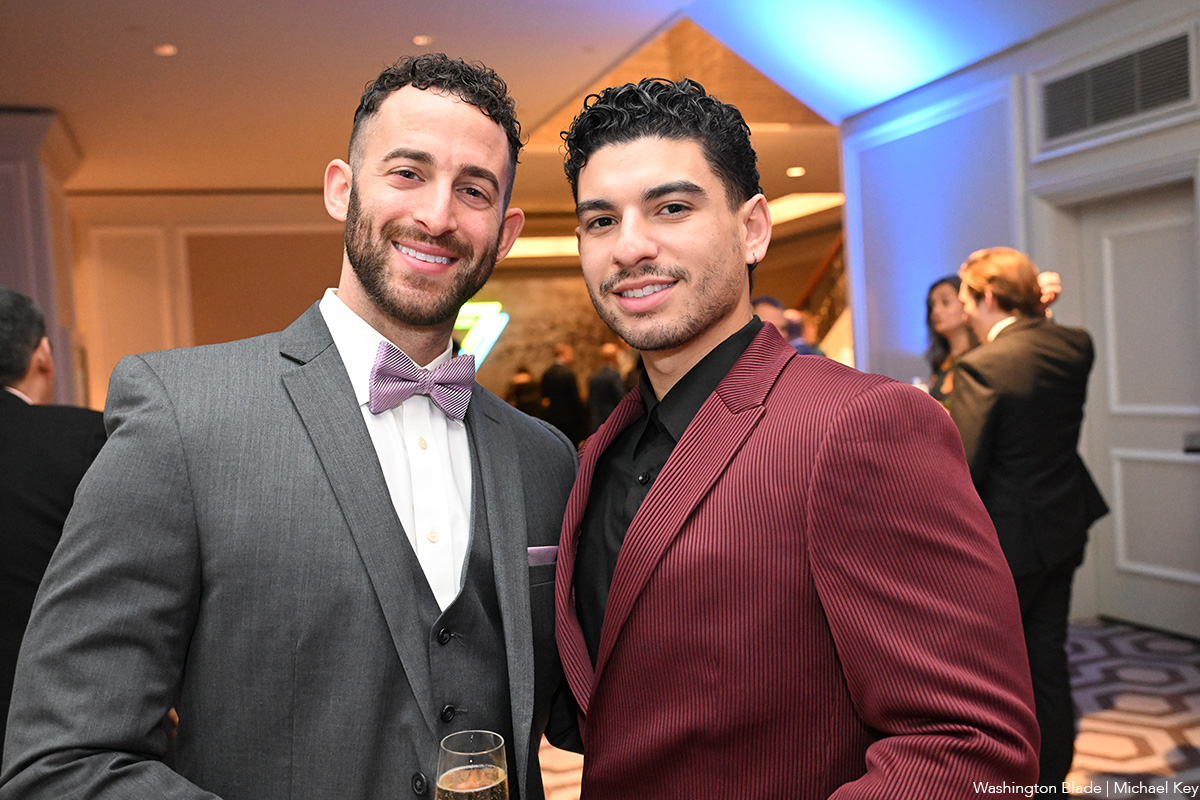
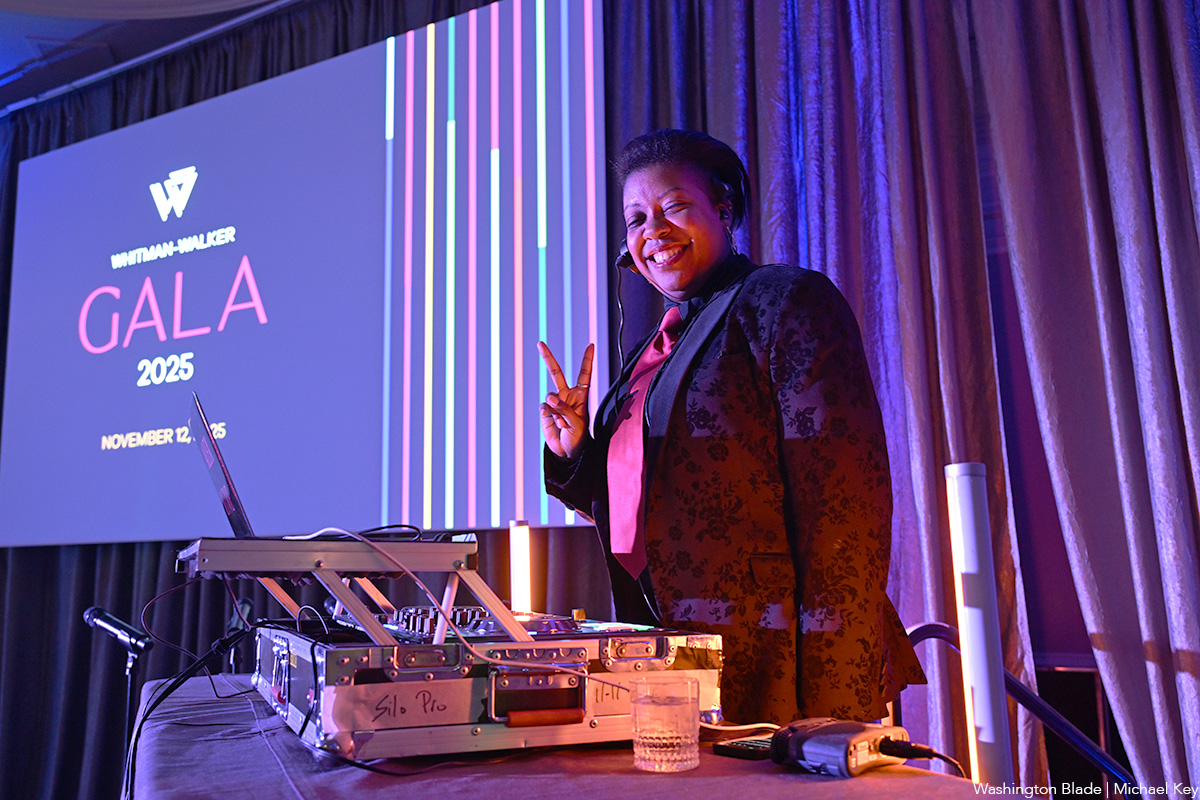
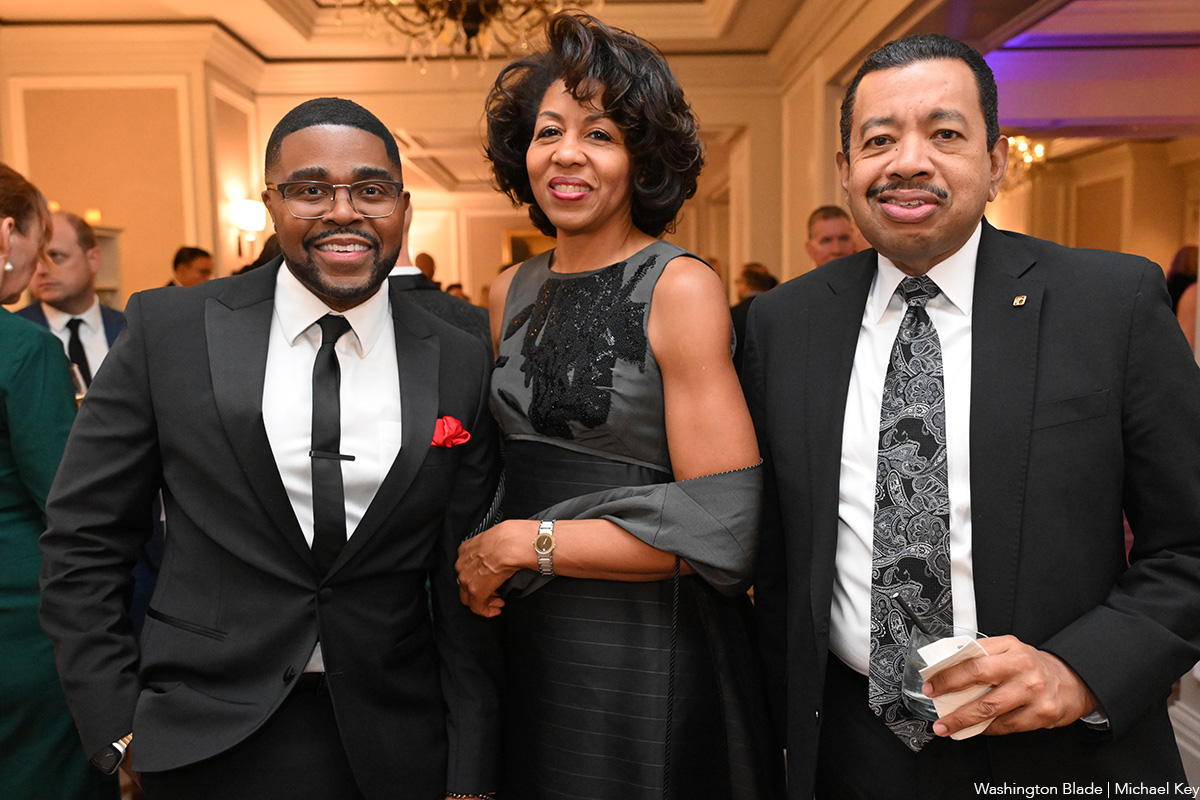


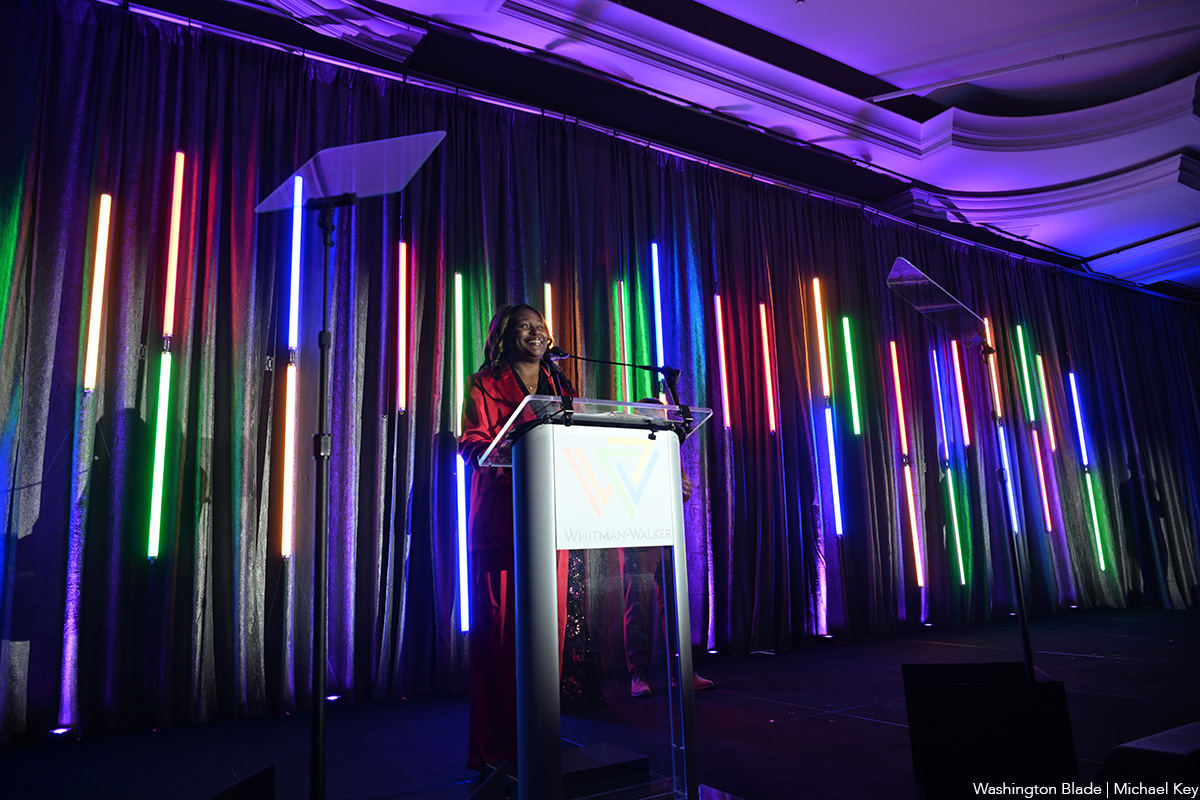
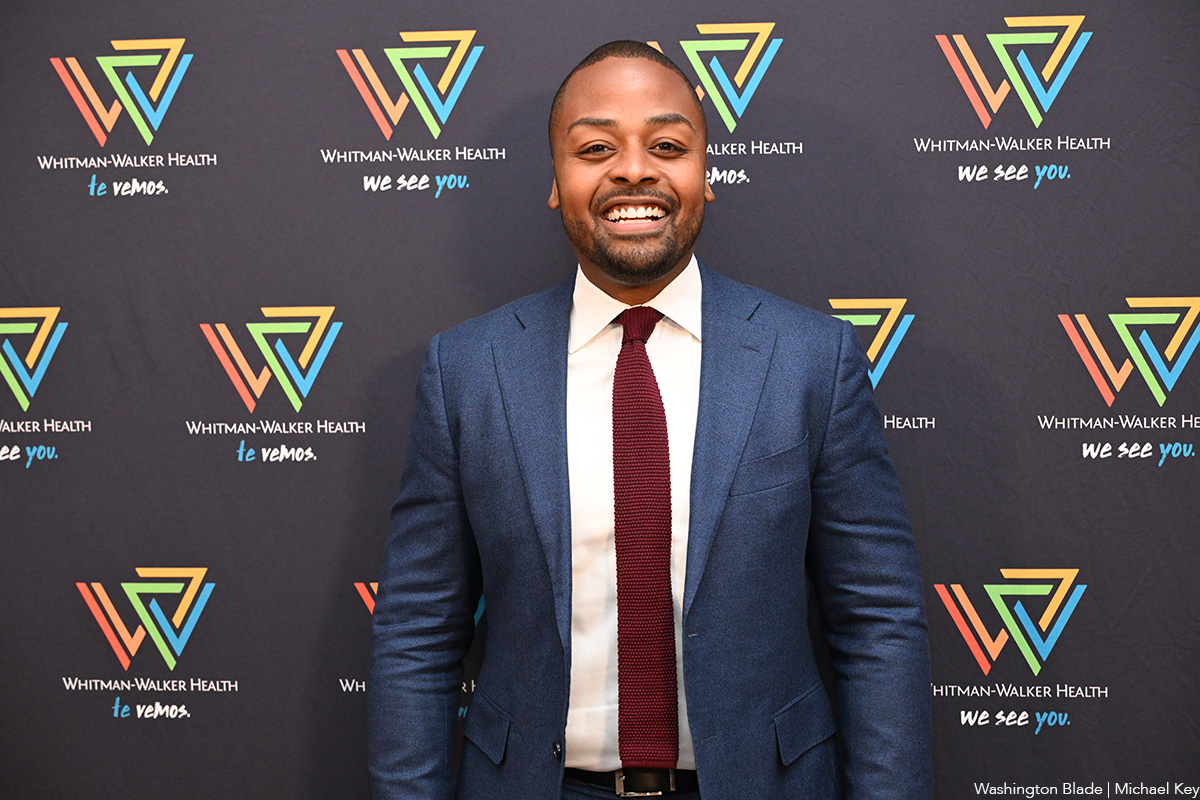

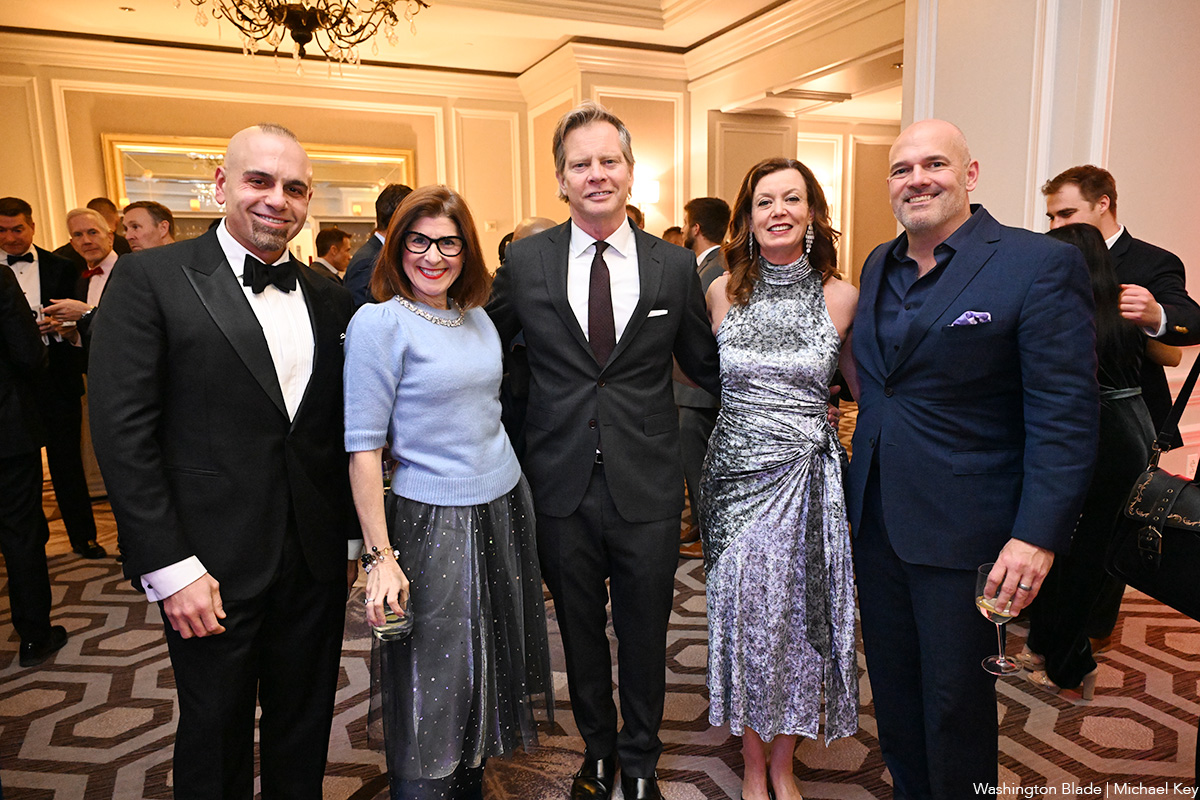
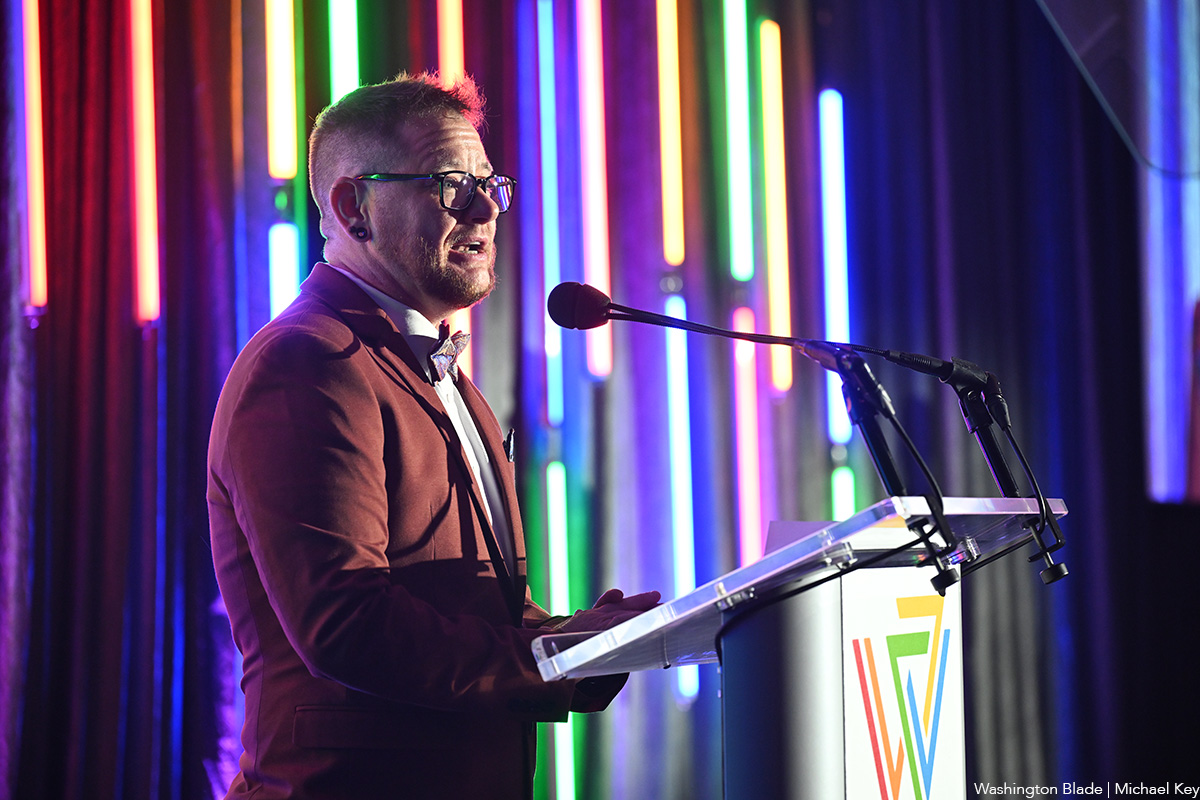
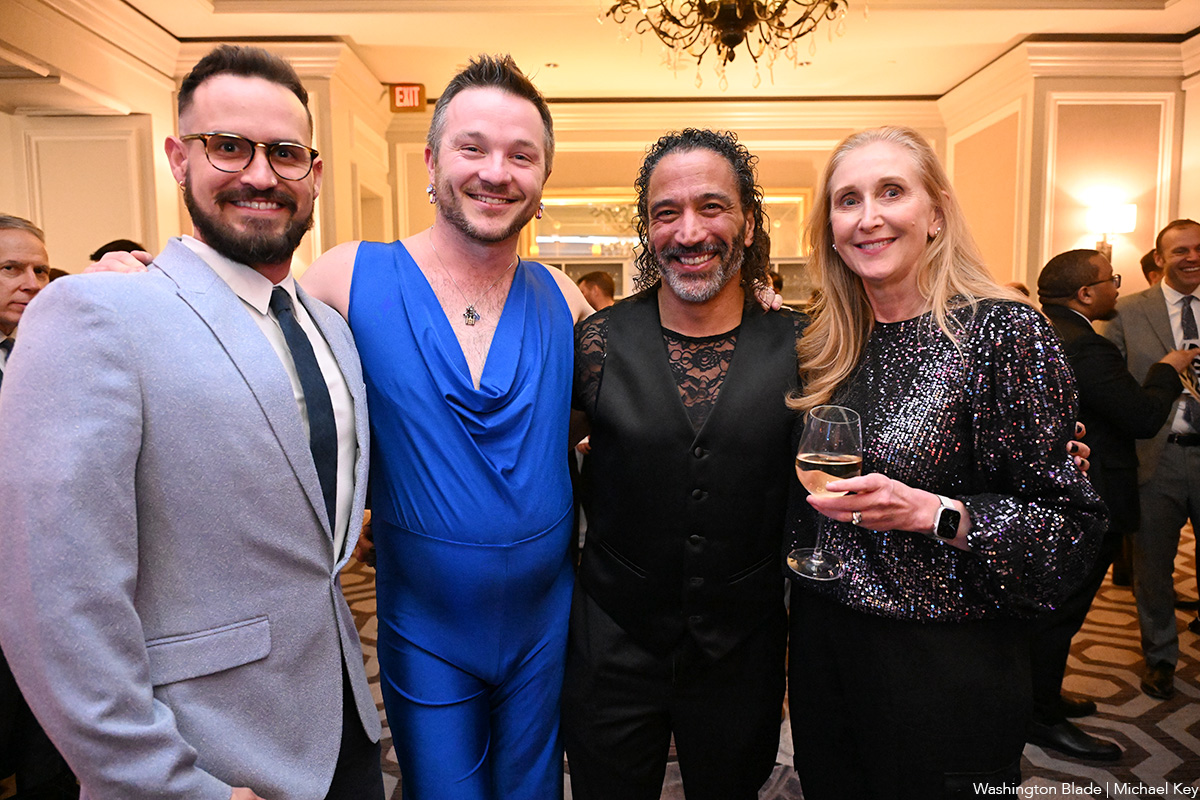

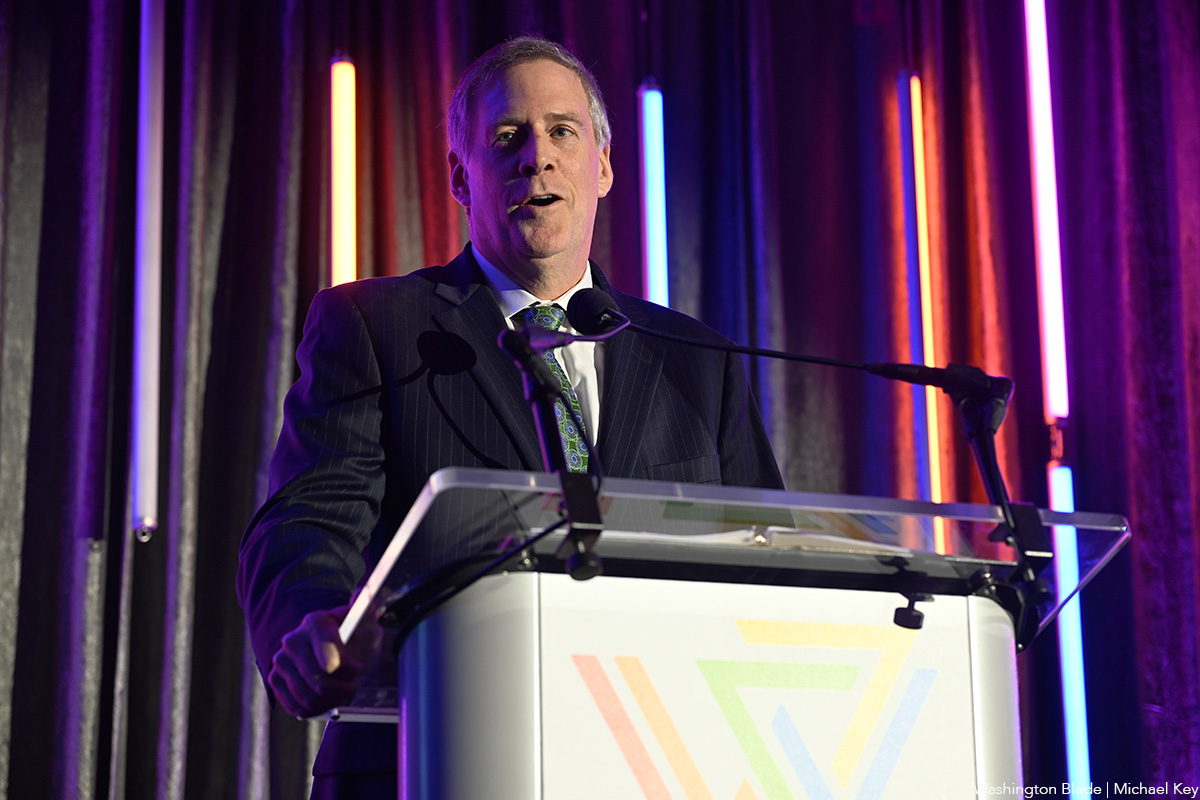

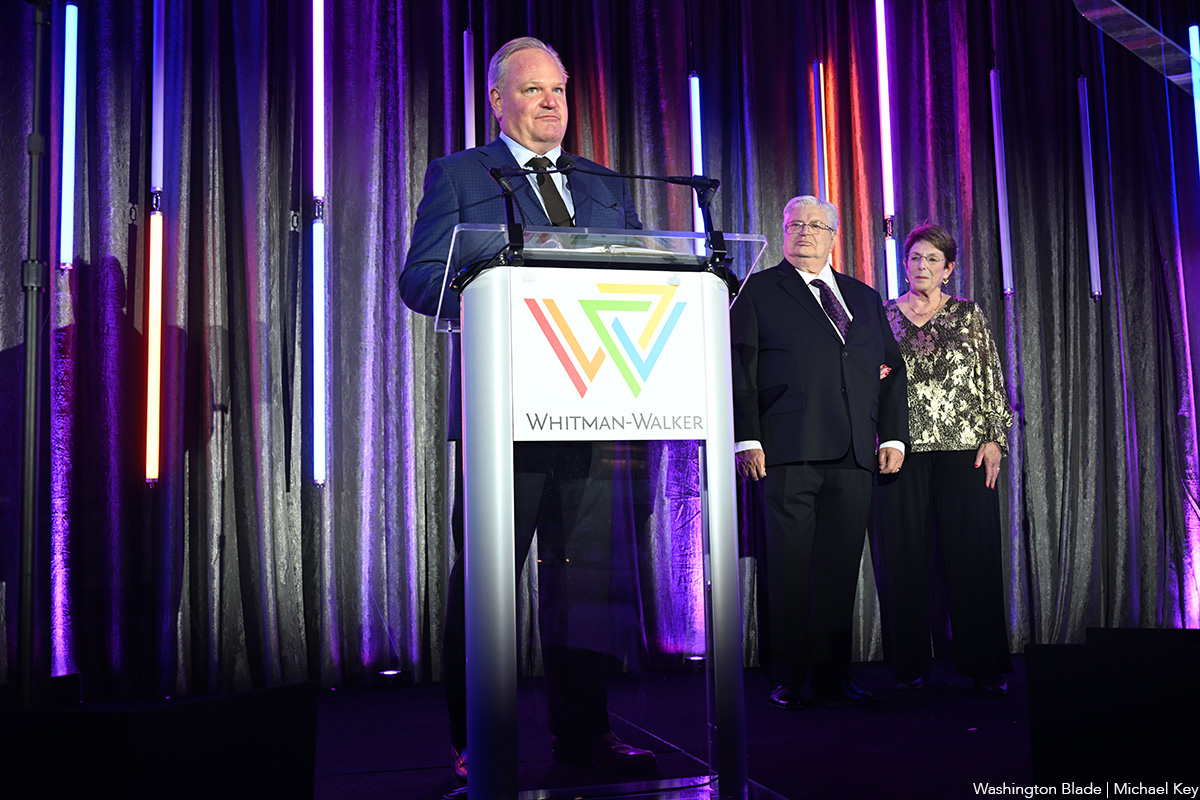
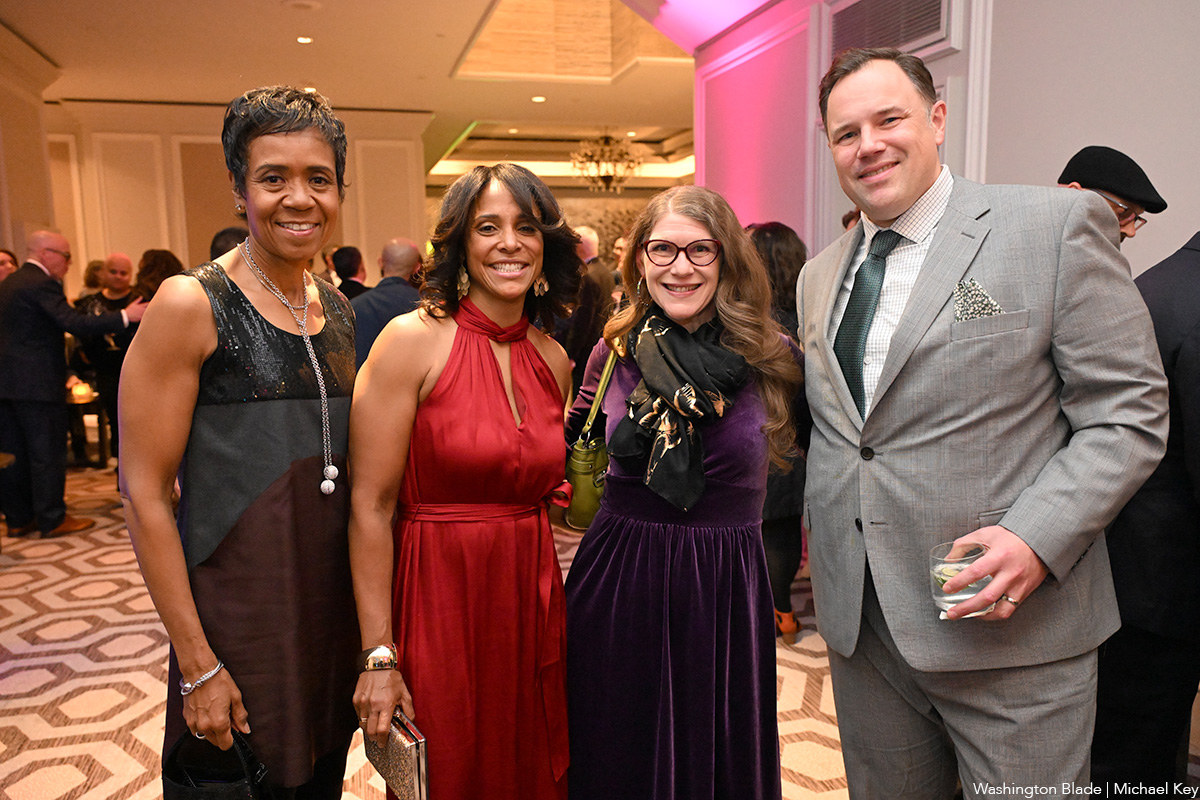
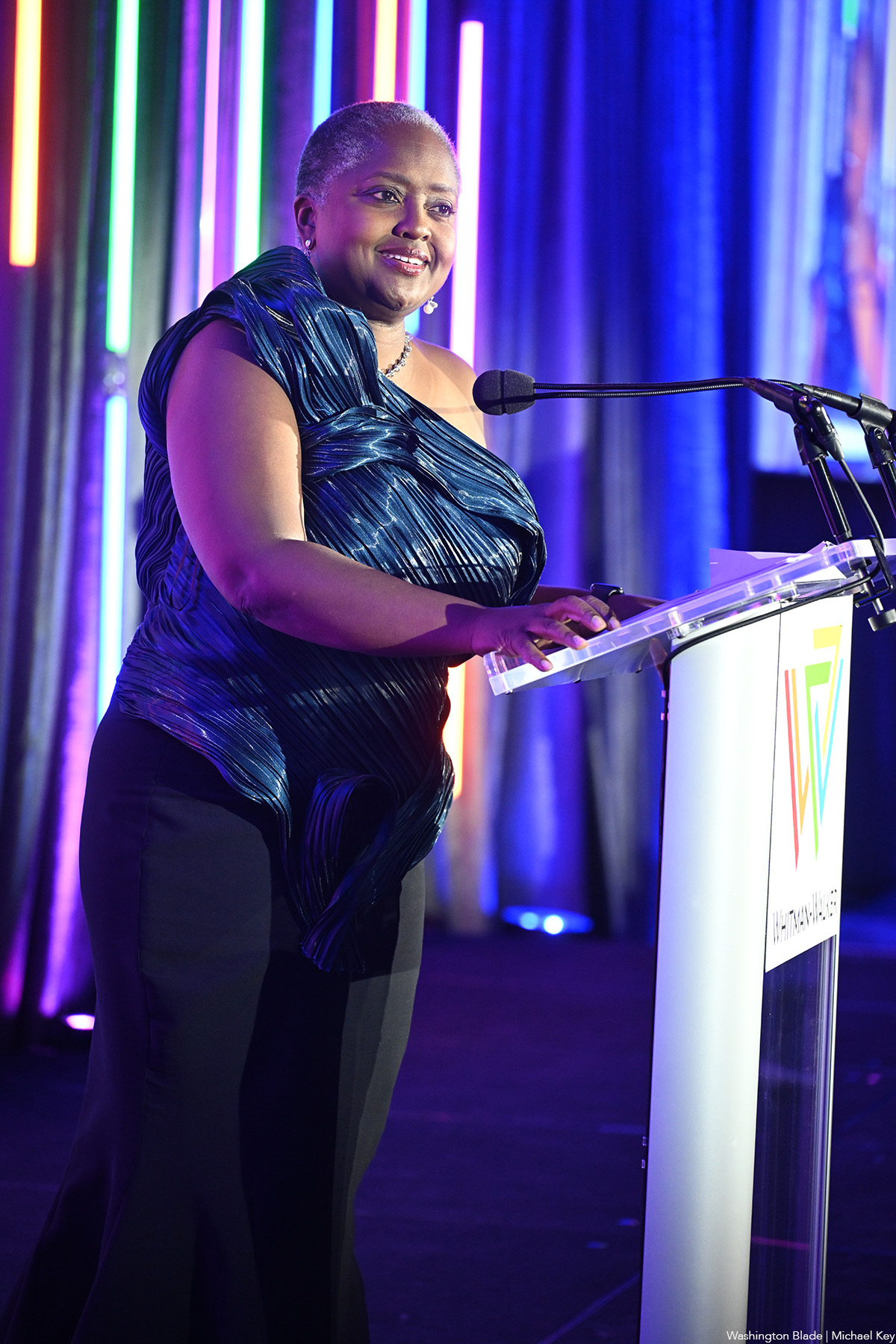
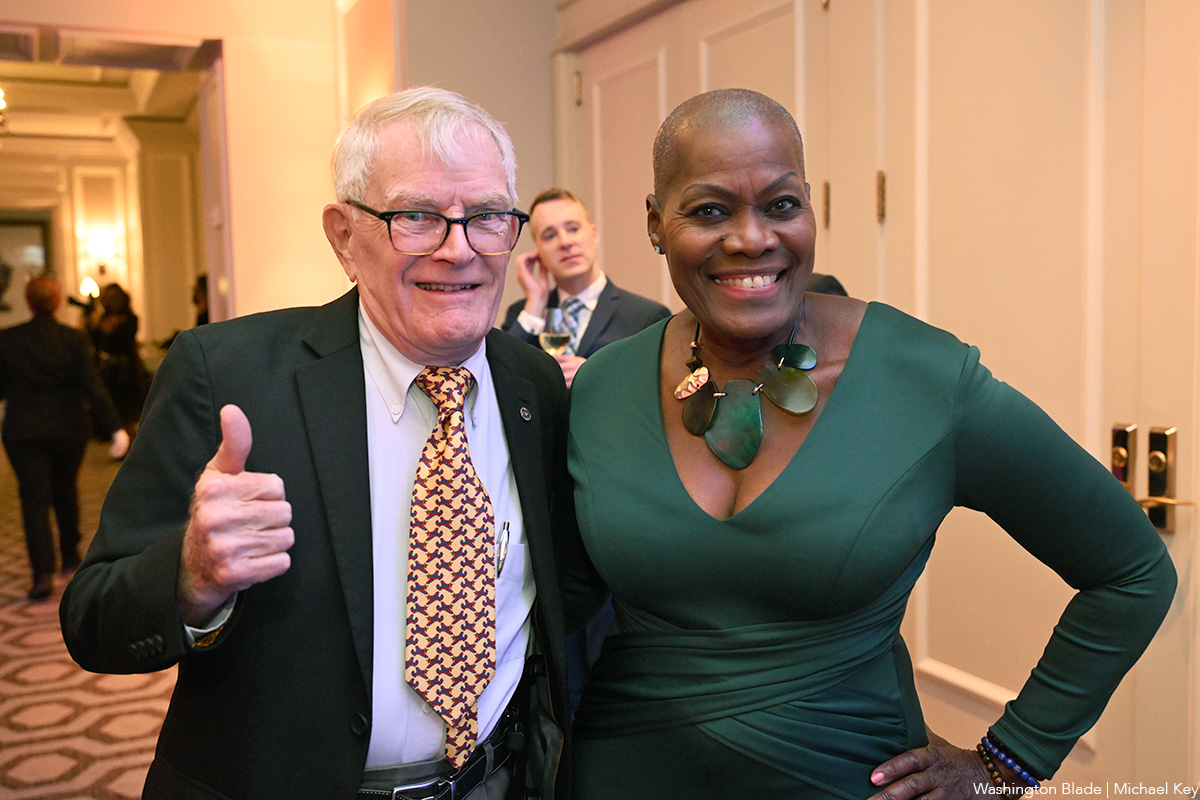


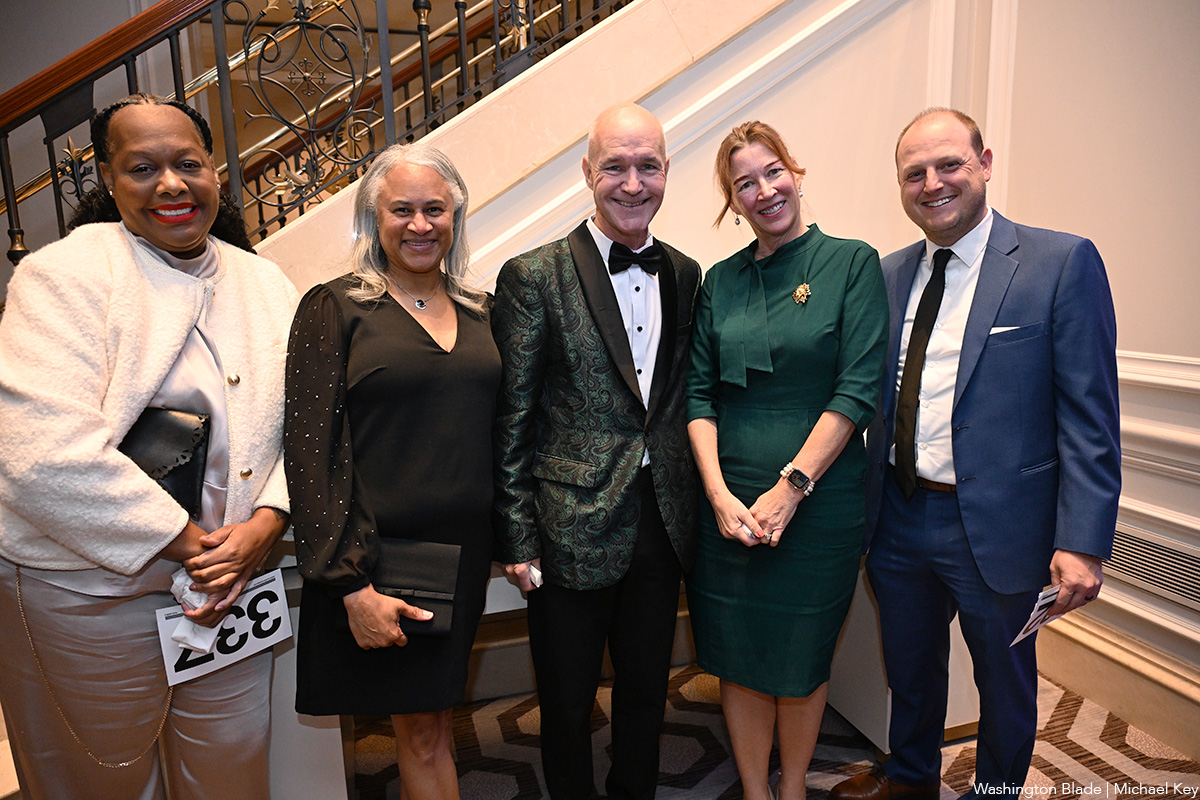
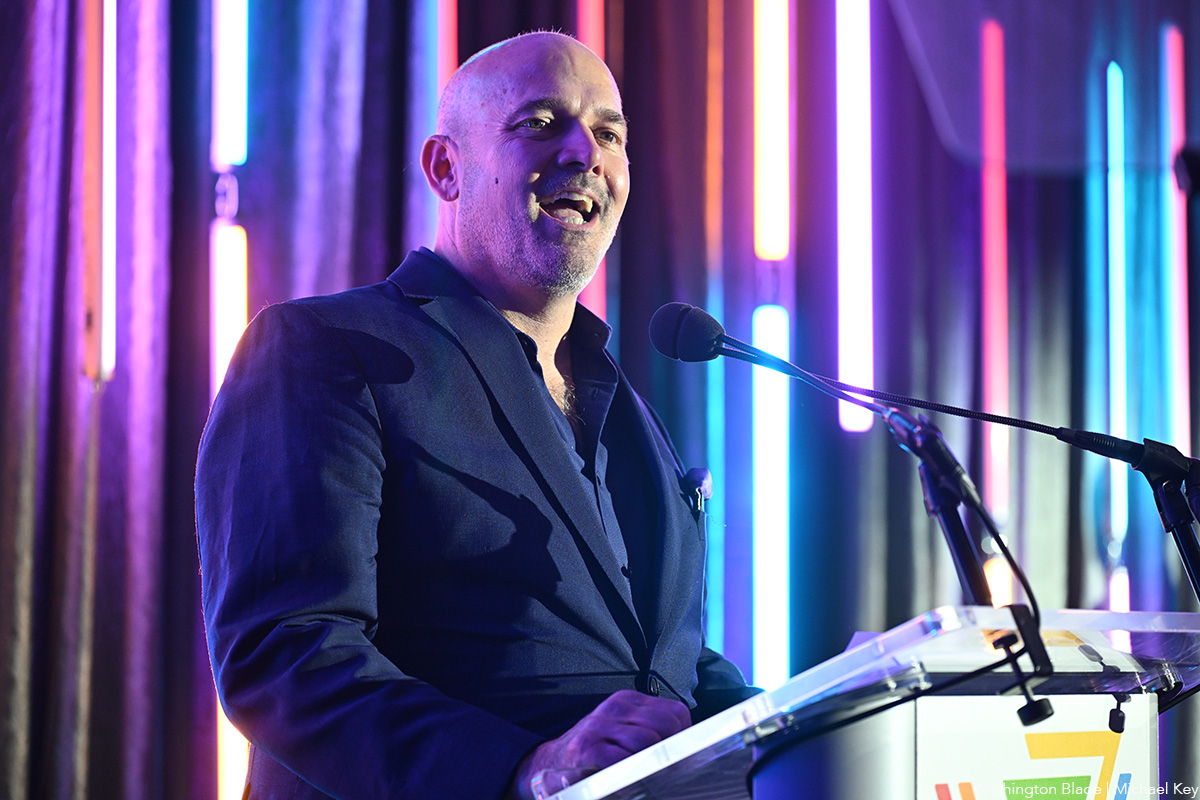



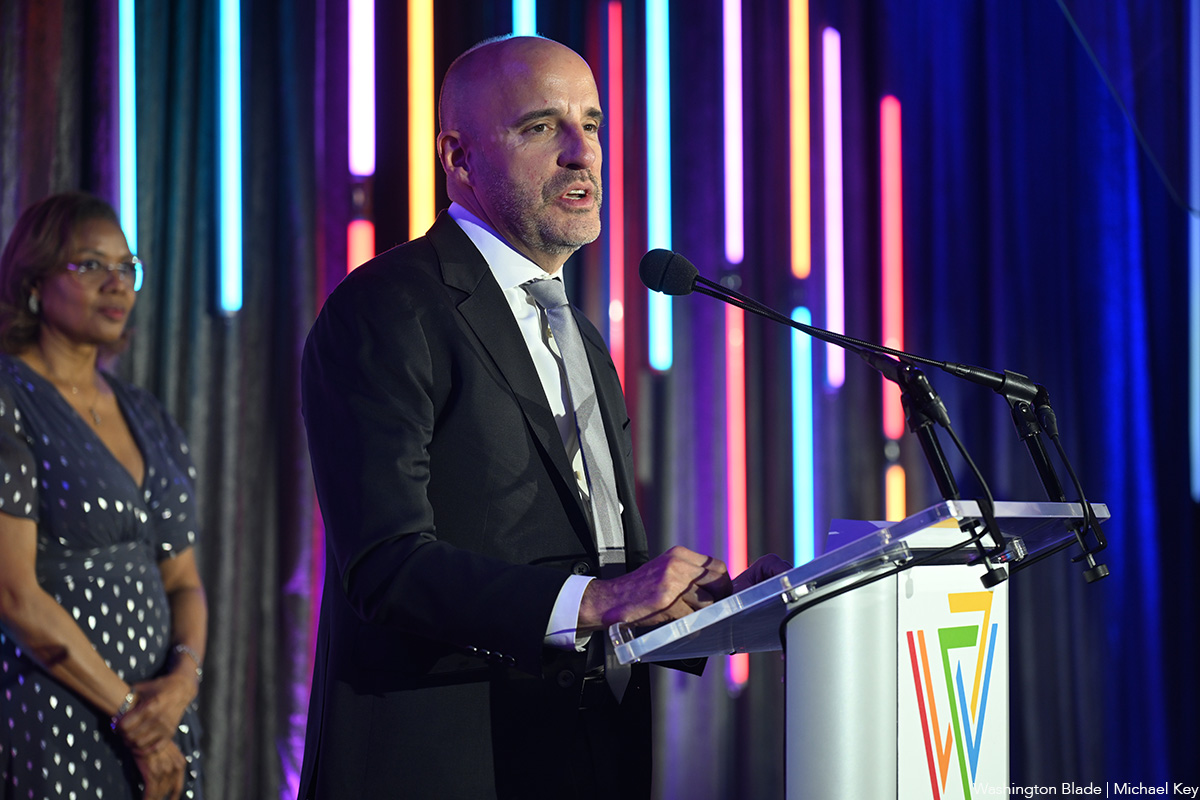
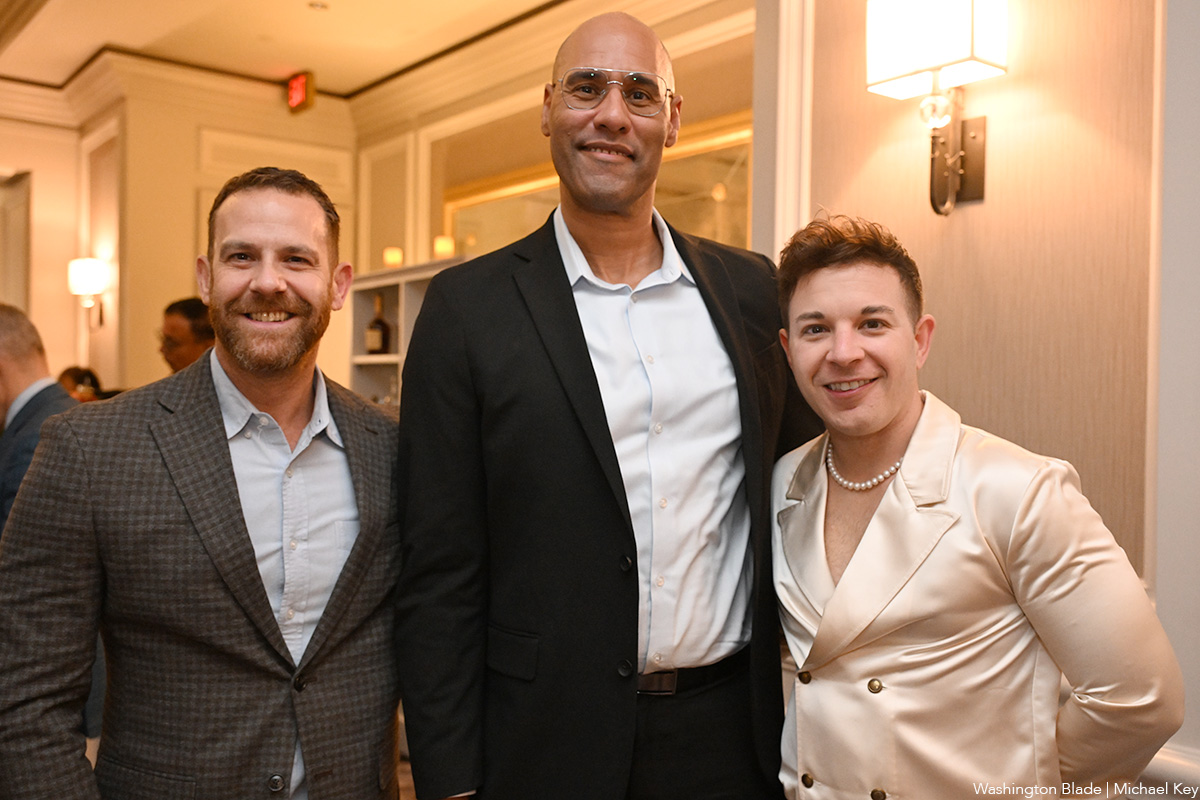



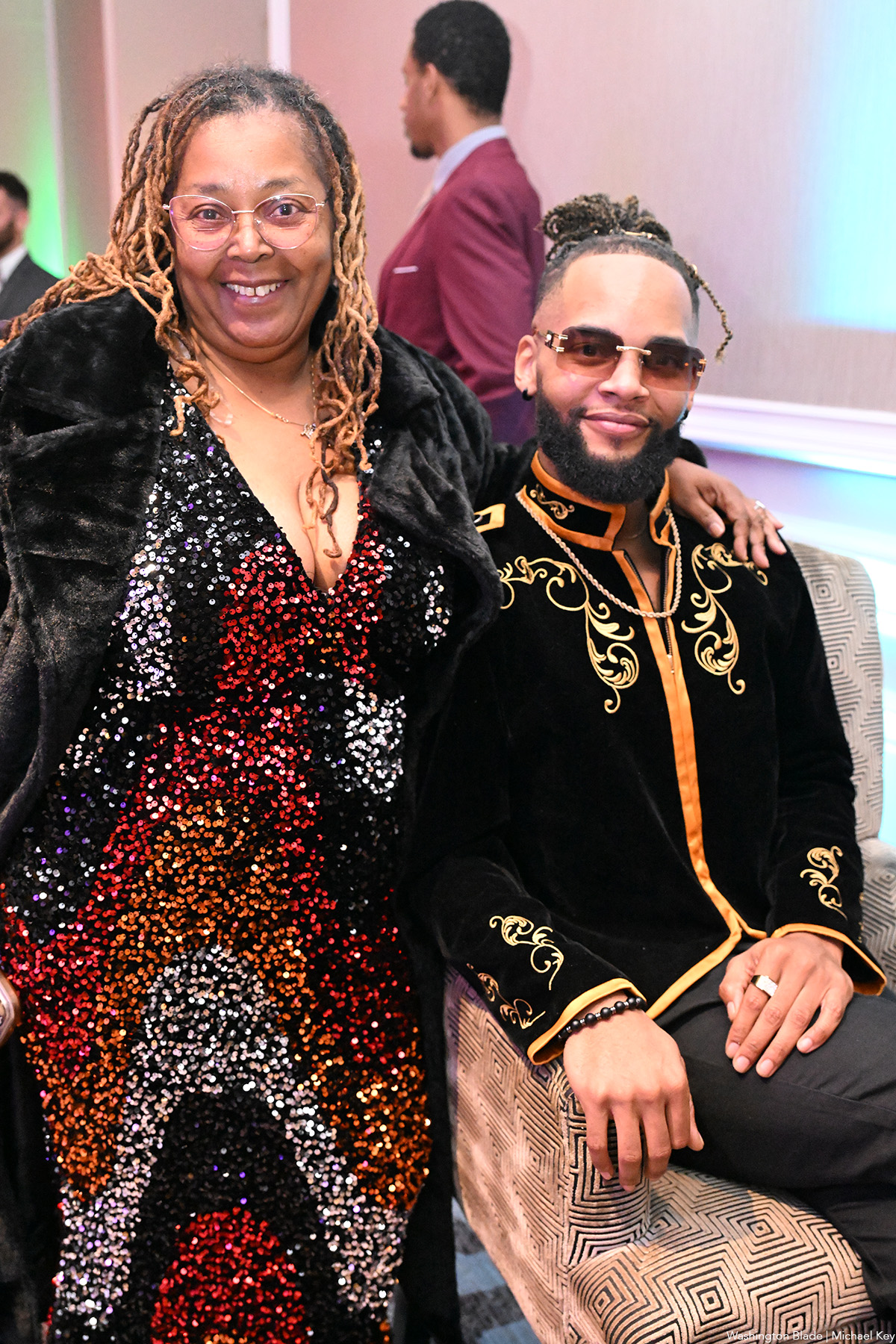
-

 Politics3 days ago
Politics3 days agoPro-trans candidates triumph despite millions in transphobic ads
-

 Turks and Caicos Islands5 days ago
Turks and Caicos Islands5 days agoTurks and Caicos government ordered to recognize gay couple’s marriage
-

 U.S. Military/Pentagon5 days ago
U.S. Military/Pentagon5 days agoServing America, facing expulsion: Fight for trans inclusion continues on Veterans Day
-

 Opinions3 days ago
Opinions3 days agoDemocratic Socialism won’t win the whole country

